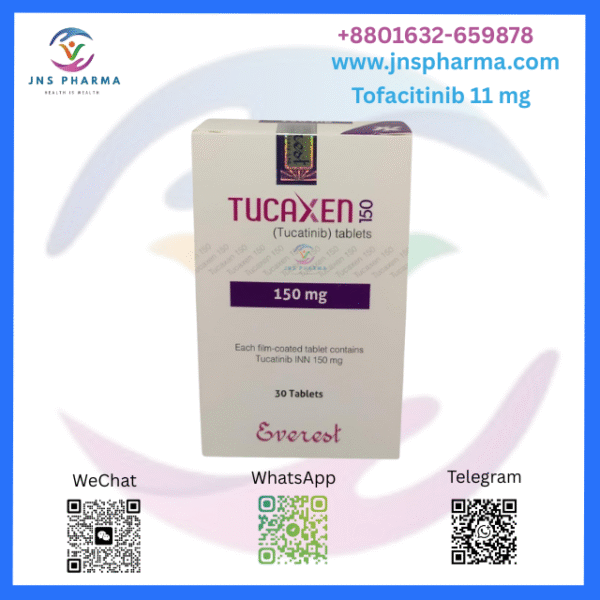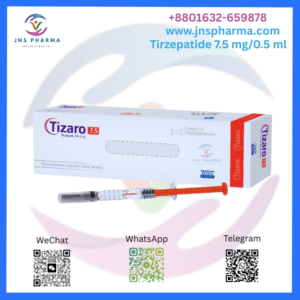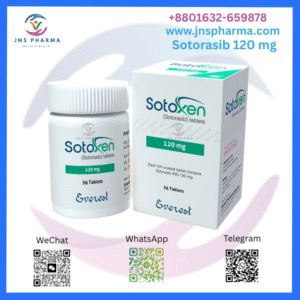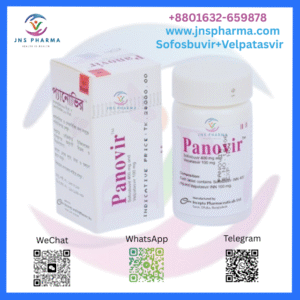Don't miss our holiday offer - up to 50% OFF!
Tucaxen 150 mg (Tucatinib)
Tucaxen 150 mg is a expression of Tucatinib, a targeted drug for the primary remedy of HER2-positive bone cancer. It’s a member of the tyrosine kinase impediments( TKIs) class of specifics, which are designed to inhibit specific proteins that support cancer cell growth. Tucatinib is a new and promising treatment for advanced or metastatic HER2-positive bone cancer cases, especially if the bone cancer has raided the brain or has beennon-sensitive to former HER2- targeted treatments.
What is Tucatinib?
Tucatinib is an extremely picky oral tyrosine kinase asset of the HER2( mortal epidermal growth factor receptor 2) protein. HER2 is overexpressed in roughly 15 – 20 of bone cancers and is linked with aggressive excrescence geste
and poor prognostic. Tucatinib inhibits intracellular signaling of HER2, decelerating or precluding the growth and spread of cancer cells.
As opposed to certain other HER2- targeting treatments that may affect HER1 as well as HER2, Tucatinib is HER2-specific. Its particularity reduces the frequence of out- target side effects, particularly gastrointestinal and skin venom, that are associated with remedy with HER1 inhibition.
Mechanism of Action
Tucatinib blocks the intracellular tyrosine kinase sphere of the HER2 receptor from phosphorylation and activation of downstream signaling pathways, including the MAPK and PI3K/ Akt pathways. These pathways are of top significance in cell proliferation and survival. By blocking HER2 signaling, Tucatinib inhibits the growth of HER2- overexpressing cancer cells.
Indications
When combined with trastuzumab and capecitabine, Tucaxen 150 mg (Tucatinib) is recommended for the treatment of adults with metastatic or incurable HER2-positive breast cancer who have at least one previousanti-HER2 treatment in the metastatic setting. It’s particularly salutary for cases whose excrescences metastasize to the brain, an area where several HER2- directed agents have limited penetration and effectiveness.
Dosage and Administration
The recommended lozenge of Tucatinib is 300 mg per day, as a single 150 mg tablet doubly daily, with or without food. It should be given together with trastuzumab( injectable HER2- targeting monoclonal antibody) and capecitabine( oral chemotherapeutic agent). Treatment is to be stopped on progression of the complaint or inferior toxin.
It’s pivotal that the case takes his dosing schedule of drug with caution. In case a cure is missed, it should be taken incontinently, but not when the missed cure is near the time of the coming cure.
Clinical Efficacy
The effectiveness of Tucatinib was established in the corner HER2CLIMB clinical trial. In this research, tucatinib in combination with trastuzumab and capecitabine was observed to significantly enhance overall survival (zilches) and progression-free survival (PFS) when compared to individuals taking a placebo with the same authority.
In particular, Tucatinib showed promising exertion against brain metastases — a common complication of HER2-positive metastatic breast cancer. Tucatinib-treated cases with brain metastases showed an increase in intracranial PFS and a decreased risk of complaint progression or death.
Side Effects
Like any other medicine, Tucaxen 150 mg has side effects. Side effects to be regularly:
Diarrhea
Hand- bottom pattern( palmar- plantar erythrodysesthesia)
Nausea and puking
Fatigue
Elevated liver enzymes( AST, ALT)
Abdominal pain
dropped appetite
Serious but rare side effects might include
Severe diarrhea and dehumidification
Hepatotoxicity( liver damage)
Neutropenia( low white blood cell count)
threat of infection
Cases who take Tucatinib bear periodic blood tests to cover liver function and blood counts. Tell a croaker
about symptoms of ongoing nausea, hostility( yellowing of the skin and/ or eyes), or unexplained frazzle.
Drug Interactions and Precautions
Tucatinib is also metabolize by the liver enzyme CYP2C8 and may interact with other medicines that are corrupters or impediments of this enzyme. Strong CYP2C8 impediments or corrupters ( e.g., rifampin or gemfibrozil) must be avoid or lozenge adaptation.
Cases withpre-existing liver conditions need to be careful with the administration of Tucatinib, and liver function tests should be cover every so frequently while on treatment. Pregnant or suckling women should also not use Tucatinib due to implicit damage to the baby.
Advantages of Tucatinib
Excellent HER2 selectivity with minimum off- target toxin
Oral convenience over intravenous curatives
Established efficacity in cases with brain metastases
May be administere in cases with previous remedy with multiple lines ofanti-HER2 treatment
Storage and Handling
Tucaxen 150 mg tablets should be store at room temperature, down from humidity and direct light. They should not be out of children’s reach or give to others. The tablets shouldn’t be resolve, masticated, or crushed by cases.
Conclusion
A significant advancement in the treatment of HER2-positive metastatic breast cancer is Tucaxen 150 mg (Tucatinib). Its targeted action, oral administration, and capability to access the blood- brain hedge make it a salutary and easy medicine for cases, especially those with brain metastases or resistance to previous HER2 treatment. Indeed though it causes some side effects, overall its benefit- threat rate is effects, especially when duly administered under medical supervision. With continued studies, Tucatinib may also find operation in other HER2- initiated cancers, making it indeed more useful in oncology.







Reviews
There are no reviews yet.